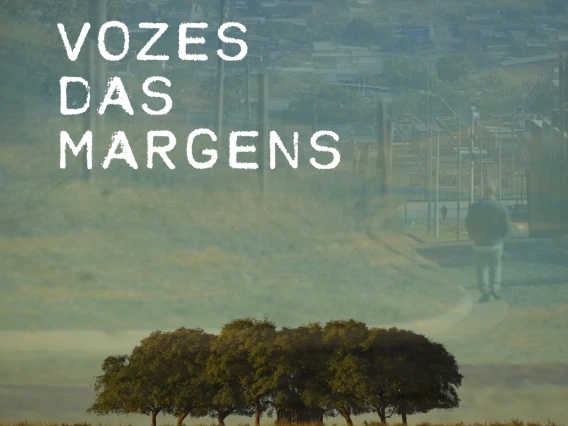
A sociolinguist who studies the unique aspects of bilingual speakers in border regions, Ana Carvalho has conducted research for decades in Portuguese-speaking communities of northern Uruguay.
But Carvalho sought to tell the story of those communities in a different way, so she stepped into the world of documentary filmmaking, directing the 82-minute Vozes das Margens, a celebratory portrait of Uruguayan Portuguese, a unique dialect, while exploring how language, place and society intertwine in border living.
“I’ve been researching there for 30 years, going back a lot to continue to collect data, so it was for me, at this point in my career, an ethical obligation to think of ways to give back to the community,” she said. “I’m grateful to them, but they never saw the results of my work, so I was never able to give back. I wanted to tell the story in a different way.”
Carvalho, a Professor in the Department of Spanish and Portuguese, began preliminary work on the documentary during her 2020 sabbatical, writing a grant proposal for the project. With a faculty grant from the College of Humanities, and other funding, she began filming in 2022. The documentary, which premiered last year in Uruguay, Brazil and Portugal, will screen on campus in the fall.
“This film is meant to celebrate diversity and celebrate bilingualism,” Carvalho said.
Carvalho has studied bilingual Spanish-English communities in and around Tucson, but has conducted most of her research in the border region between Uruguay and Brazil. There are about 200,000 native Portuguese speakers in Uruguay, a legacy of colonization and poorly delineated borders in the 1700s and 1800s. By the end of the 19th century, the Uruguayan government began to implement measures to eradicate Portuguese from the area and make Spanish obligatory.
“While Uruguay was successful in implementing Spanish, in areas were Portuguese was the main language, it’s remained as a heritage language,” Carvalho said. “It’s still a local language and very attuned to the idea of the border area and identity.”
Uruguayan Portuguese speakers can face linguistic discrimination and mocking and Carvalho said she wanted to counter the misperceptions of language abilities that designate people as “semi-lingual.” The documentary shows how truly bilingual the border residents are.
“I also wanted to disseminate ideas of language as a human right,” she said. “People have the right to speak their home language in public domains.”
The film consists of interviews with about 20 people, filmed over a 22-day period in which Carvalho and three independent documentary cinematographers she hired in Uruguay traveled more than 600 kilometers to visit various communities.
With no outside interviews or expert opinions, the subjects of the film relate their own experiences with language. Carvalho identified common topics throughout the narratives, editing the film around the themes of bilingualism (how, when, where and to whom people are socially conditioned to speak different languages), how they acquired Portuguese at home as a heritage language, linguistic discrimination and insecurity, the community language shifting to Spanish monolingualism over generations, and not to end on a sad note, the value of local language and identity. The film features poetry and music in Uruguayan Portuguese, demonstrating regional pride.
The film premiered in the communities where it was filmed and then at a Cinemateca in Montevideo. Carvalho said she was struck by the contrast between the largely rural audiences and the intellectual urbanites of the capital city, most of whom had no idea about the bilingual border communities. The documentary was featured in television interviews in both locales, as well as radio and newspaper interviews.
“The press and publicity were very welcome. People could see, hear or read about sociolinguistic concepts, language ideologies and how harmful language prejudice can be,” she said.
After showing in Uruguay, Vozes das Margens began showing at conferences and film festivals. Last October, it screened at Portugual’s long-running international festival Doclisboa, becoming a finalist for an award. The film has been submitted to additional festivals for 2025 in Germany, Italy and Canada.
The long-term plan is to make the film available for streaming. Carvalho is currently preparing accompanying materials for teachers to use in classrooms, guiding them through discussion topics like heritage languages, bilingualism, ideologies and code-switching.
“Uruguayan Portuguese is a variety of Portuguese like any other. Because people also speak Spanish, code-switching is common, as is the use of some words only in Spanish, such as names of institutions or professions,” she said. “The documentary celebrates linguistic diversity and hopefully, will lead viewers to critically re-think language ideologies.”

